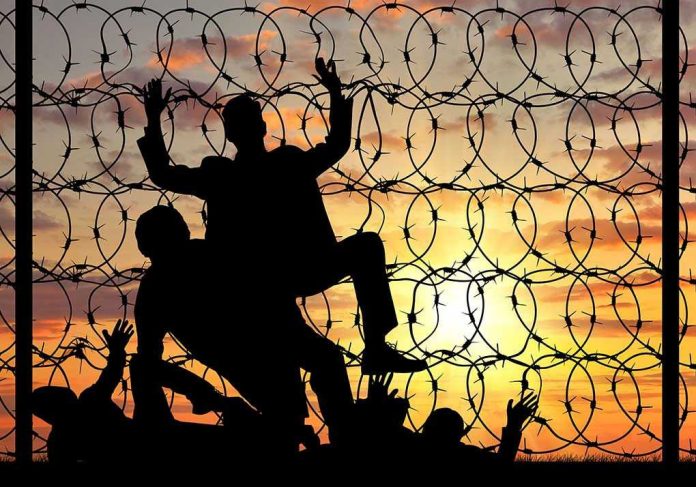
Twenty high-risk gang members escape from a Guatemalan prison, igniting a political firestorm and exposing deep-rooted security failures.
Story Snapshot
- 20 gang members from Barrio 18 escaped from Fraijanes II prison.
- Criticism mounts against President Arévalo and Interior Minister Jiménez.
- Only one inmate has been recaptured so far.
- Political pressure for security reforms and leadership accountability intensifies.
Prison Break Sparks Political Crisis
Guatemala is grappling with a significant political crisis following the escape of 20 gang members from Fraijanes II prison. The inmates, affiliated with the notorious Barrio 18 gang, managed to break free, prompting widespread criticism of President Bernardo Arévalo and Interior Minister Francisco Jiménez. The escape has raised questions about leadership capabilities and the integrity of Guatemala’s prison system, fueling demands for immediate reforms and accountability.
The U.S. government has taken a keen interest in this incident, given its designation of Barrio 18 as a terrorist organization. The escape not only poses a direct threat to national security but also highlights systemic issues within Guatemala’s law enforcement and correctional facilities. As the international community watches closely, the pressure on the Arévalo administration to act decisively grows stronger by the day.
Historical Context of Gang Violence
Guatemala’s struggle with gang-related violence is not new. Groups like Barrio 18 and MS-13 have long been involved in a range of criminal activities, including extortion and murder. The country’s rising homicide rates reflect the severe security challenges it faces. This escape underscores the need for robust reforms in the prison system. Previous escapes have shown that without significant changes, such breaches of security will continue to threaten the safety and stability of the nation.
In light of these events, the government has proposed an anti-gang bill aimed at increasing penalties and constructing a maximum-security prison. However, the effectiveness of these measures remains uncertain as political tensions rise and public confidence wanes.
Stakeholders and Power Dynamics
The political fallout from this escape has put President Arévalo and Interior Minister Jiménez in a precarious position. Calls for Jiménez’s resignation have grown louder, with critics pointing to his inability to prevent the escape as evidence of weak leadership. Meanwhile, President Arévalo faces criticism for being abroad during the crisis, exacerbating perceptions of inadequate governance.
The U.S. government’s involvement adds another layer of complexity. As a key player in regional security, the U.S. has a vested interest in ensuring that Guatemala effectively addresses the threats posed by gangs like Barrio 18. The interplay between domestic politics and international relations will significantly influence the country’s next steps in resolving this crisis.
Current Developments and Reactions
Since the escape, only one of the twenty escaped inmates has been recaptured, reflecting the challenges authorities face in dealing with this situation. In response, the Guatemalan government has reinforced security at prisons and borders, hoping to prevent further incidents. Debate continues over the best approach to addressing these security challenges, with some advocating for militarizing prisons and declaring a state of prevention.
The ongoing political crisis has spurred discussions about the need for comprehensive security reforms and greater accountability among government leaders. As public fear and discontent grow, the pressure on the administration to deliver concrete solutions becomes increasingly urgent. The coming weeks will be critical in determining whether the government can restore stability and confidence in its ability to protect its citizens.












